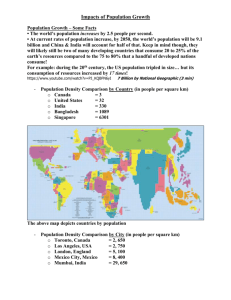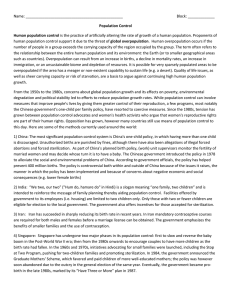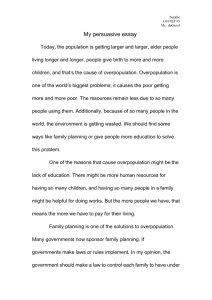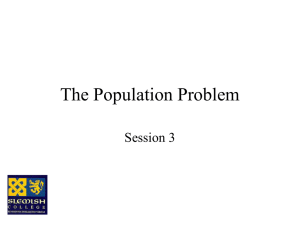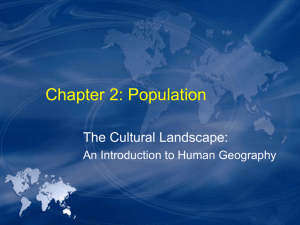Overpopulation - Hicksville Public Schools / Homepage
advertisement
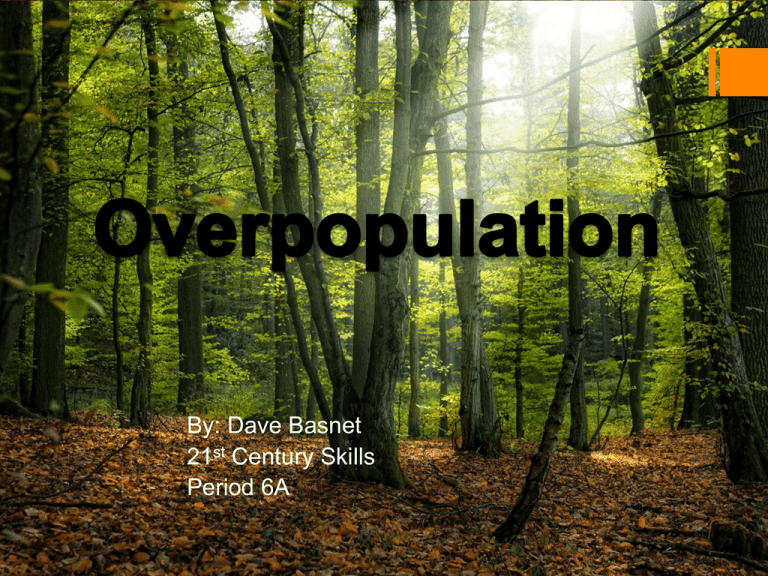
By: Dave Basnet 21st Century Skills Period 6A Overpopulation Overpopulation is an indubitable controversial topic of the present and future. Overpopulation is the unbalanced ratio of humans to resources. Statistical information shows that every day over 345,600 babies are born in the world, but every day 153,000 people die. Since more people enter the world than leave it, the population is overflowing. The more babies born start a lingering domino effect. More resources are being used and the world may be forced to take drastic measures. Effects of Overpopulation “...the chief cause for the impending collapse of the world - the cause sufficient in and by itself - is the enormous growth of the human population: the human flood. The worst enemy of life is too much life: the excess of human life,” said Pentti Linkola the author of A Radical Approach To The Environmental Crisis. Global Population Chart Analysis According to this graph, there will be many increases and decreases of the population throughout the year. In this graph, the country of Niger is the least populated compared to other countries with a population of over 200 million. And the most populated country is China currently, but slowly India will trump the population of China. Statistics There is an estimated 680 Million Chronic starving people in the world. In the year 2050, the world population will have reached to a staggering 9.2 billion people. There will be 125 million births in the world this year. By the time this group is ready to start school, there will have been another 625 million births. •Every 20 minutes, the human population grows by about 3,000. At the same time another plant or animal becomes extinct (27,000 each year). •The population of the U.S. tripled during the 20th century, but the U.S. consumption of raw materials increased 17-fold •The richest 20 percent of humanity consumes 86 percent of all goods and services, while the poorest fifth consumes just 1.3 percent. 1985 Year that humanity's demand for resources first exceeded supply •As population and hunger increase in the developing world, water availability for irrigation is declining. •Between 1999 and 2011, the world’s population increased by 1 billion The average life expectancy is 61, up from 40 in just 50 years. The numbers of people 65 and older make up 10-15% of the world population today and is expected to increase to 20-30% by 2050. Overpopulation in the World In the Rio, Brazil this is an everyday turnout at the beach. Bibliography Kukreja, Rinkesh. Conserve Energy Future. Ed. Rinkesh Kukreja. U.S Department of Energy, n.d. Web. 21 Jan. 2014. Rosenberg, Dr. Eureta. "Population Growth & Sustainable Development." Enviropaedia. SABC 3, n.d. Web. 16 Jan. 2014. Thomasson, Sir, and Peter Collins. Worldometers . United Nations, n.d. Web. 14 Jan. 2014.
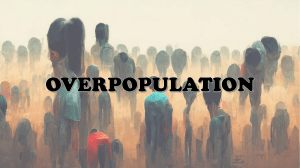
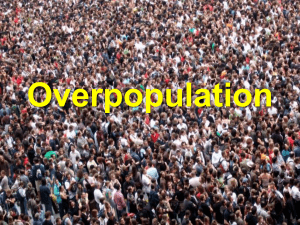
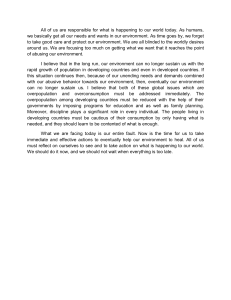
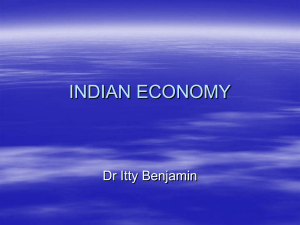
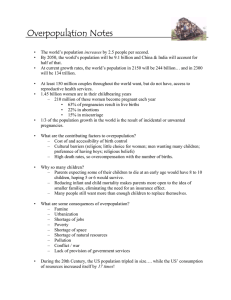
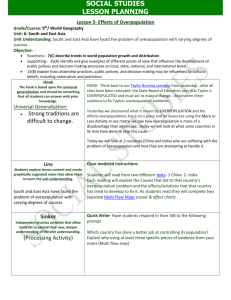
![[标签:标题]](http://s3.studylib.net/store/data/007514640_1-d06ca384d6a6efac05ae8c0c925f8675-300x300.png)
